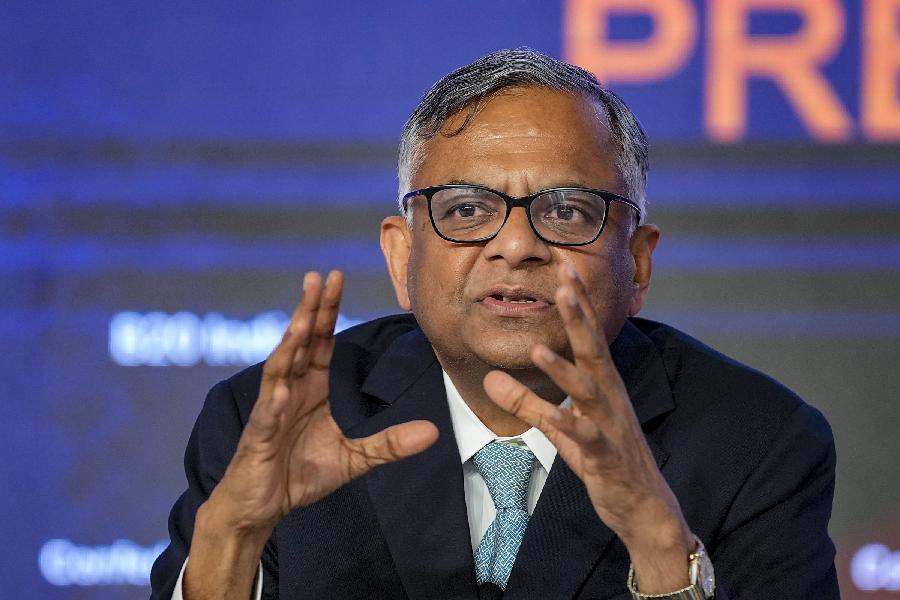Artificial intelligence will create more jobs in India as it will empower more people with little skill or no skill to perform higher level jobs, B20 India Chair N Chandrasekaran said on Friday.
In a panel discussion at the B20 Summit India 2023 here, Chandrasekaran, who is also the Chairman of Tata Sons, said India has made a "fantastic breakthrough" towards data privacy and protection by taking a techno-legal approach.
Seeking to address concerns over privacy and jobs with the advent of artificial intelligence (AI), he said, "Actually in a country like us, it (AI) will create jobs because it will empower people with the little skill or no skill, will empower them with information skill so that they can perform a higher level of jobs." He cited the example of a nurse and said due to AI "the nurse will be able to take away the workload of a doctor and that's the way we are going to scale up".
Chandrasekaran, however, stated that the impact of AI will play out in different markets and different segments of the society differently.
"We talk about a country like India, we say that hundreds of millions of people have to have access... Additional 250 to 300 million people are coming into the market. They have access to information, they have access to goods and services in their own way, they start consuming, it just multiplies the whole GDP to a different level and then their per capita income goes up and we will see the benefit for a very, very long time," he said.
On the other hand, he said the ageing economies are also going to face longevity and all these people have to be taken care of and they don't have enough human resources to provide the kind of service that needed to be provided to support these people once they get aged.
"Again, AI will come in handy or play a very very important role because a vast majority of the things that need to be taken care of can be done by AI. So the benefits are going to be different to different segments and in different markets but everywhere (AI) is going to create jobs, it is going to empower people to do high levels of jobs," Chandrasekaran asserted.
In markets where there are no people it is going to substitute for human beings and provide the service that is expected, he added.
On data privacy and protection, Chandrasekaran said, "I do believe that India has made a big breakthrough in this whole privacy space. India has taken a technical legal approach." He further said, "On the one hand, we got the regulation for data privacy and data protection. On the other hand, we have created DEPA, which is data empowerment and protection architecture. Both working together we are able to very safely secure with consent, any transaction and sharing of data at aggregate level with complete security, protecting privacy." DEPA is the technology architecture that provides data empowerment and protection architecture creating the necessary public infrastructure architecture on which private applications can be built.
"It has got digital consent completely embedded. So any sharing can be done at an aggregate level with the proper consent. It is a fantastic breakthrough I feel because it is very different from the traditional approach of over engineering the laws and regulatory framework, which is totally punitive," Chandrasekaran said.
The approach of having laws where there is a violation, the legal recourse will be a very strong set of damages that cannot be put in a country like India, "because there's no way that people will pay", he added.
"So the better way is to integrate a technology architecture with the legal framework. It is something to be studied and championed outside India," Chandrasekaran said.
Except for the headline, this story has not been edited by The Telegraph Online staff and has been published from a syndicated feed.











